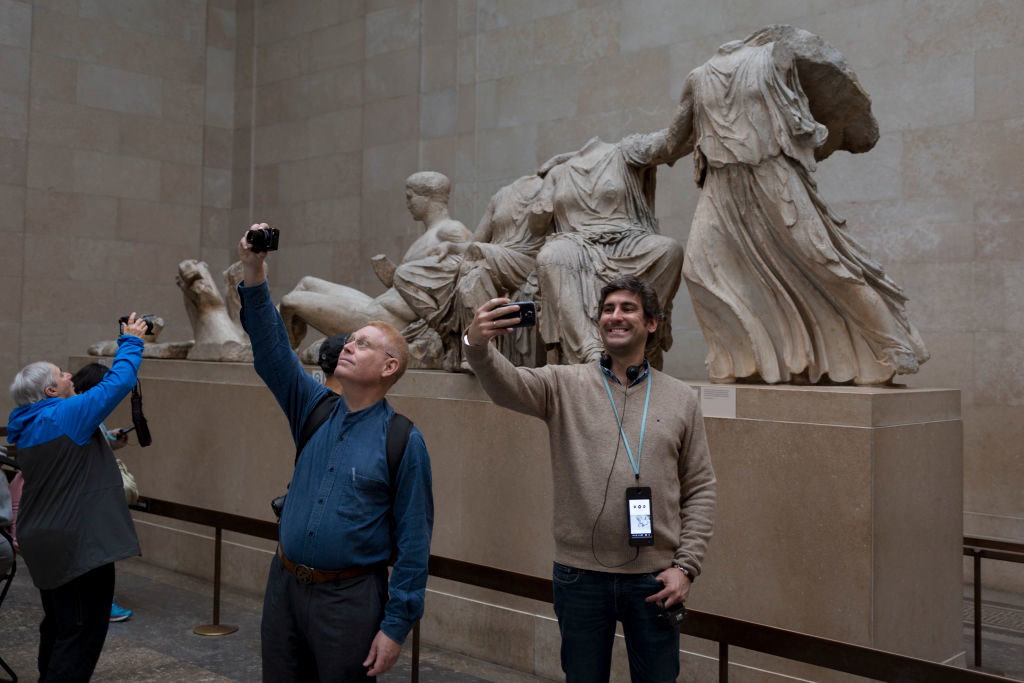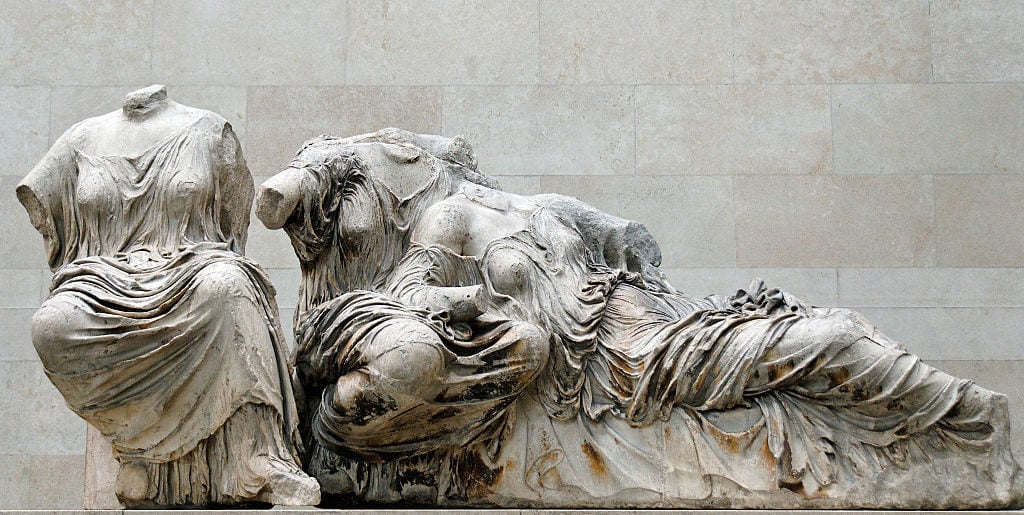Art World
Rumors Swirl That Greece’s Demand for the Parthenon Marbles Could Gain Traction in the Brexit Trade Battle
Alarm bells ring in London as the restitution of looted cultural property is added to the agenda ahead of trade talks.

Alarm bells ring in London as the restitution of looted cultural property is added to the agenda ahead of trade talks.

Kate Brown

As the European Union and Britain prepare for the next round of intense negotiations, it appears that the restitution of cultural objects will be one of many contentious issues. After a draft EU mandate leaked to the media this week, reporters and sources close to the matter were quick to speculate that the Parthenon Marbles in the British Museum may become a bargaining tool in Brexit trade talks between Europe and the UK.
A clause was added to a draft of the EU’s negotiating mandate saying the British government should “address issues relating to the return or restitution of unlawfully removed cultural objects to their countries of origin.” Many looked to one of the most disputed cultural objects within the UK’s museums, the Parthenon sculptures, which reside in the British Museum in London. They were shipped from Greece to London in the early 19th-century by British aristocrat Lord Elgin.
According to Bloomberg, some officials involved say the clause is seen as a direct reference to the marbles that Greece has been campaigning to have returned since 1832. “It is a measure of how Brexit has changed the game that the Greeks feel able to use the trade talks to pursue the Elgin Marbles,” says one EU ambassador involved in the draft of the document, according to The Times. Others disagree, adamant that the clause is more about combating the illicit trade of antiquities in Europe and Britain. One Greek official told Bloomberg that the clause does not relate to the marbles at all, stressing that its longstanding claim is a bilateral issue between Greece and the UK.
The various EU governments are expected to finalize and sign the mandate next week ahead of negotiations with the UK, which are due to begin next month. The mandate defines the parameters of the EU’s position going into the talks. The clause about cultural objects was proposed by Greece, Italy, Spain, and Cyprus. Other issues range from migration to fishing rights, farming, and the financial sector.

Part of the Elgin Marbles, were originally part of the Parthenon in Athens. Photo: by VCG Wilson/Corbis via Getty Images.
The ancient statues were taken from the Parthenon in the early 19th century by Lord Elgin, who later sold them to the British government. Greece has long requested that they should be returned permanently to Athens. Neither the British Museum nor the UK government has flinched at growing pressure for their repatriation, which has come from very high positions in the Greek government, including its Prime Minister.
The US academic Patricia Vigderman, who is the author of of The Real Life of the Parthenon, tells Artnet News that that the marbles have figured into politically-motivated crisis points before. The question of their return came up during World War II as a way to potentially help Greece resist German occupation; again the point was raised in the 1950s during Greek-Cypriot revolts and terrorism; in the 1970s, their repatriation was also floated as part of a possible way to end Greece’s military dictatorship.
“None of those went anywhere, however, and it’s unlikely that this will either,” she says. “In the ancient world returning captured booty was a way of marking a ruler’s power and magnanimity.” She thinks that a compromise today is as remote as ever. Sounding a sceptical note, she says: “Such large-mindedness is decidedly not the hallmark of our time, and throwing the marbles into the cauldron will not flavor the stone soup of Brexit.”
In response to this most recent outcry over the sculptures, a spokesperson for the British Museum restated its position. Speaking to the Guardian, they said: “The Parthenon sculptures were legally acquired and help us to tell the story of human history presented at the museum. They are accessible to the 6 million global visitors the museum receives each year.” The British Museum also pointed to the Greek government’s statement that they would not enter into Brexit talks.
Last year, British Museum director Hartwig Fischer said the marbles would never be returned because, according to him, “when you move cultural heritage into a museum, you move it out of context. Yet that displacement is also a creative act.” He said the sculptures are as at home in Britain as they are in an archeological museum in Athens. In 2009, the Greek government unveiled the new Acropolis Museum designed by the French architect Bernard Tschumi. It was partly funded by the European Union.